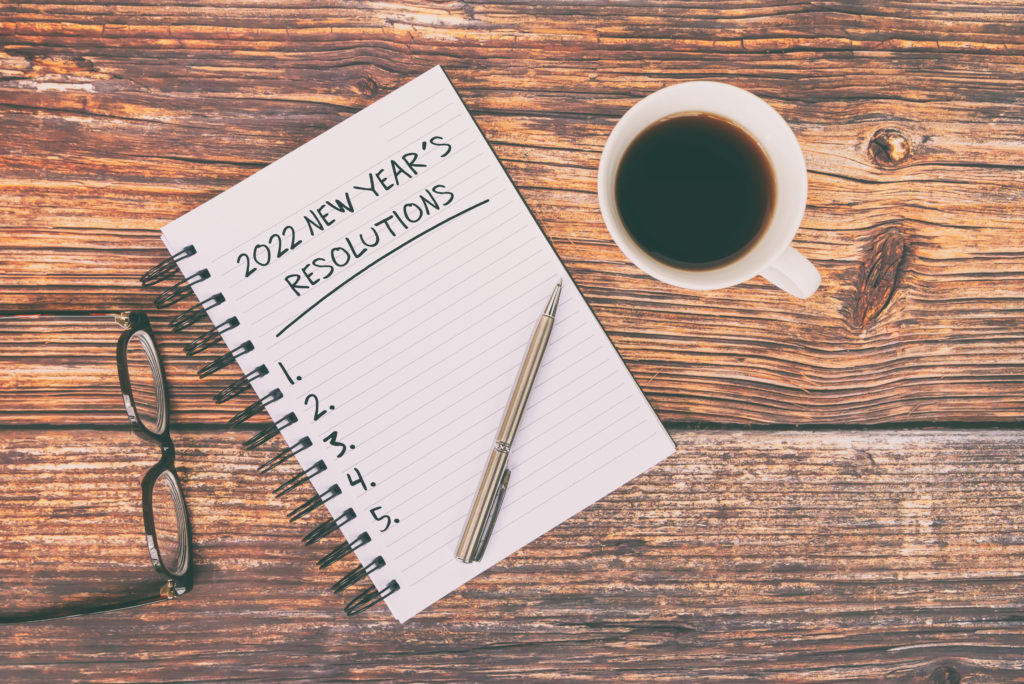As 2022 rolls in and our bullet journals and OneNotes fill up with New Year’s resolutions—gym goals, soda moratoriums, getting to inbox zero, etc., everyone is thinking of how to use these next 12 months to become their very best self. Last year, nearly 75% of Americans said they were determined to make new habits or lifestyle decisions in 2021. The problem is that resolutions don’t always stick. Only about a third of resolution hopefuls in 2020 kept all of their resolutions, with less than half keeping some and 16% failing to keep any.
“Lost or misplaced goals can be due to different reasons. Sometimes our goals are too broad and ambitious, sometimes they simply fall through the cracks as our years pick up and we find ourselves scrambling to keep up with the regular pace of life, let alone hitting the gym seven times a week or reading Fyodor Dostoevsky’s entire bibliography.” Says Stephanie Staiano, CSS ProSearch Sales Director.
It’s time to break the cycle of discarded lists and repeating goals every year to no avail. Read on for our tips on how to actually follow through with your New Year’s resolutions (and have a great time doing it!)
Don’t break them — break them up
We all have grandiose ideas of our future selves coming out of the next year with a shorter mile time, better work/life balance, and a cleaner house. But how do we get there? While you jot down your ambitions for the next 12 months, do your near-future-self a favor by planning out the steps that will get you from here to there. Instead of getting lost on the sheer size and page count of Dostoevsky’s collected works, think of each book as its own project per month or quarter. Tackle Crime and Punishment in January and leave your spring or summer self to worry about The Brothers Karamazov.
Breaking up your resolutions into smaller tasks not only organizes your list and gives you a step-by-step process on how to achieve your goals, but it also keeps you grounded with your resolutions.
Try rolling resolutions
You have 12 months, or 365 days, to hit your goals. While it’s great to get the head start in January, it’s also worth thinking of your resolutions as a rolling list, one that you can return to throughout the next year. If you’re having trouble juggling all of your new habits and lifestyle changes at one time, consider breaking them up into sections to make them more manageable and less intimidating.
As we talked about earlier, breaking up big, lofty goals into smaller items is an effective way of organizing your resolution list. Likewise, an entire year of running a nine-minute mile can sound daunting, so take off some of the pressure by shifting the goalpost by just a bit (it’s your goalpost, after all). If you’re new to running or coming back to it, ease yourself in by focusing first on consistency rather than the minutes, then ramp up to a time-based goal in the next few months.
It takes anywhere from 18 to more than 250 days to form a new habit, and an average of 66 days for adopted behavior to feel automatic. Give yourself some grace by shifting the way you view goals and how to achieve them and let yourself use the whole year as your running track.
Balance out your goals
The most popular resolutions in 2020 were to exercise more, save money, and eat healthier. Everyone is looking to feel better physically and mentally, all while having a little more time in the day and a lot more savings in their pockets. Keep yourself balanced by keeping in mind where you’re setting your goals. Instead of putting all of your focus on the gym or the bank, consider spacing things out so that you can target different parts of your life and wellness. Not only does this keep the pressure off your knees and Target shopping sprees, but it’s also a great way of making sure that you’re working on your best, all-around self.
Don’t focus on yourself
This may sound contradictory. After all, what are New Year’s resolutions if not a list of things we wished about ourselves? While you look forward to meeting a better you, a stronger you, a more well-read you, consider also the people who are part of your every day. Our relationships are important aspects of who we are, a fact that is more than apparent after the last two years we’ve had. It’s worth reassessing them and seeing how they fit into our lives because sometimes, if not most of the time, our friends, family, and colleagues can help us achieve our personal goals. If you want to have a better work/life balance, for example, consider how your work relationship dynamics play a part in your productivity. We all work differently, with some thriving in a bustling office environment while others prefer heads down, quiet time. Considering how these affect the way you get things done and then communicating with your managers and teammates can be a worthwhile step in balancing out your workday.
At CSS ProSearch, we understand the importance of great team dynamics. We take a consultative approach to recruiting and focus on creating lasting partnerships, using our 50 years of combined experience, technology, research, and innovative practice to place the best talent for growing businesses in the healthcare, technology, and consulting verticals. Read our blog for more tips and insight or reach out and see how we can help you with your next search.
